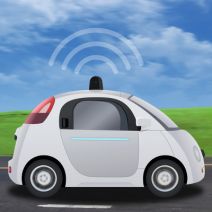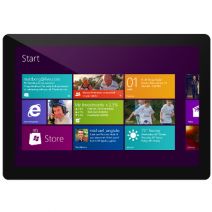SMART Blog
 The world might not see widespread use of artificial intelligence for quite some time, but that doesn’t mean developers aren’t taking baby steps in that direction. Take for example Google and its automated vehicles. If Google successfully makes a self-driving car that’s aware of its surroundings, we might see them on the roads as early as 2020.
The world might not see widespread use of artificial intelligence for quite some time, but that doesn’t mean developers aren’t taking baby steps in that direction. Take for example Google and its automated vehicles. If Google successfully makes a self-driving car that’s aware of its surroundings, we might see them on the roads as early as 2020.
 How many of your employees have a smartphone? The answer is probably most (if not all) of them. In the United States alone, nearly two-thirds of adults own a smartphone, and many of them depend on the device to do much of their personal computing. As a result, many workers, even if instructed not to, will use their devices while at your office. This is why many companies have put in place a comprehensive Bring Your Own Device (BYOD) strategy.
How many of your employees have a smartphone? The answer is probably most (if not all) of them. In the United States alone, nearly two-thirds of adults own a smartphone, and many of them depend on the device to do much of their personal computing. As a result, many workers, even if instructed not to, will use their devices while at your office. This is why many companies have put in place a comprehensive Bring Your Own Device (BYOD) strategy.
 With as many resources as you’ve invested in your company’s technology, you should do everything you can to protect it. An IT infrastructure that doesn’t have an Uninterruptible Power Supply (UPS) safeguarding its data, is putting the entire operation at risk. Here’s what you need to know about this important device.
With as many resources as you’ve invested in your company’s technology, you should do everything you can to protect it. An IT infrastructure that doesn’t have an Uninterruptible Power Supply (UPS) safeguarding its data, is putting the entire operation at risk. Here’s what you need to know about this important device.
 As of two weeks ago, Internet Explorer 8, 9, and 10, are no longer supported by Microsoft. That’s right; no more patches or security updates for IE. This makes continuing to use older versions of Windows a cause for concern. Perhaps this is for the best, but in light of this news, users of IE will want to either update to IE 11 or switch to a new browser.
As of two weeks ago, Internet Explorer 8, 9, and 10, are no longer supported by Microsoft. That’s right; no more patches or security updates for IE. This makes continuing to use older versions of Windows a cause for concern. Perhaps this is for the best, but in light of this news, users of IE will want to either update to IE 11 or switch to a new browser.
 Technology changes at an astounding rate. Because of constant technological improvements, some users feel the need to replace their devices the second a bigger and better technology is launched. On the other hand, the increase in reliability of computers in recent years has has hindered the sales of new PCs.
Technology changes at an astounding rate. Because of constant technological improvements, some users feel the need to replace their devices the second a bigger and better technology is launched. On the other hand, the increase in reliability of computers in recent years has has hindered the sales of new PCs.
 Entertainment has grown so synonymous with smartphones and technology that it’s almost impossible to think about these innovations without considering their entertainment value. Virtual reality augmentation, while slightly different, is an emerging technology that brings elements of virtual space to the lives of everyday users. So, how does virtual reality work, and can it be used for more than just entertainment purposes?
Entertainment has grown so synonymous with smartphones and technology that it’s almost impossible to think about these innovations without considering their entertainment value. Virtual reality augmentation, while slightly different, is an emerging technology that brings elements of virtual space to the lives of everyday users. So, how does virtual reality work, and can it be used for more than just entertainment purposes?
 When was the last time you let your phone’s battery die on you? Due to the takeover of mobile technology in the workplace, smartphones have basically become inseparable from their owners, particularly the ever-busy business owner. Despite the imperative role that smartphones have in the workplace, you should know that there are several battery myths that might be holding you back from achieving maximum efficiency with your device.
When was the last time you let your phone’s battery die on you? Due to the takeover of mobile technology in the workplace, smartphones have basically become inseparable from their owners, particularly the ever-busy business owner. Despite the imperative role that smartphones have in the workplace, you should know that there are several battery myths that might be holding you back from achieving maximum efficiency with your device.
 You can’t have IT without information, you can’t have information without data, and technology is what creates data so that you can better use your company’s technology to increase sales. Got it? Understanding the flow of data can be confusing. It’s important to have a handle on it so you can leverage your data for the success of your business.
You can’t have IT without information, you can’t have information without data, and technology is what creates data so that you can better use your company’s technology to increase sales. Got it? Understanding the flow of data can be confusing. It’s important to have a handle on it so you can leverage your data for the success of your business.
 Smartphones and tablets are the new norm. Most professionals have begun to utilize mobile devices to accomplish tasks when they are away from their work PC. Not to say that these devices offer all that much in the way of productivity. Sure, there are plenty of software titles either ported over from the PC or developed directly for the mobile environment, but sometimes these titles don’t offer the functionality, or they take up too many of the device’s resources to be of much use. With these variables to consider, manufacturers are searching for the best way to deliver devices with enhanced productivity capabilities, right out of the box. One of these manufacturers is Microsoft.
Smartphones and tablets are the new norm. Most professionals have begun to utilize mobile devices to accomplish tasks when they are away from their work PC. Not to say that these devices offer all that much in the way of productivity. Sure, there are plenty of software titles either ported over from the PC or developed directly for the mobile environment, but sometimes these titles don’t offer the functionality, or they take up too many of the device’s resources to be of much use. With these variables to consider, manufacturers are searching for the best way to deliver devices with enhanced productivity capabilities, right out of the box. One of these manufacturers is Microsoft.
 If you’re in the market for a new computer, then you’re going to have to make a decision: Go with a traditional hard drive (HDD), or a solid state drive (SSD). While a computer equipped with an HDD will cost you less money, an SSD promises to faster speeds and a longer lifespan. This begs the question, is SSD worth the extra money?
If you’re in the market for a new computer, then you’re going to have to make a decision: Go with a traditional hard drive (HDD), or a solid state drive (SSD). While a computer equipped with an HDD will cost you less money, an SSD promises to faster speeds and a longer lifespan. This begs the question, is SSD worth the extra money?
 IT support is heavily reliant upon communication between both parties involved. Without both sides being on the same page, IT support miscommunications are far more likely to happen. Sometimes you just can’t help but laugh at poor communication skills, as seen in the 2001 movie Zoolander. But thankfully, these situations don’t arise too often in the non-fictional universe… right?
IT support is heavily reliant upon communication between both parties involved. Without both sides being on the same page, IT support miscommunications are far more likely to happen. Sometimes you just can’t help but laugh at poor communication skills, as seen in the 2001 movie Zoolander. But thankfully, these situations don’t arise too often in the non-fictional universe… right?





